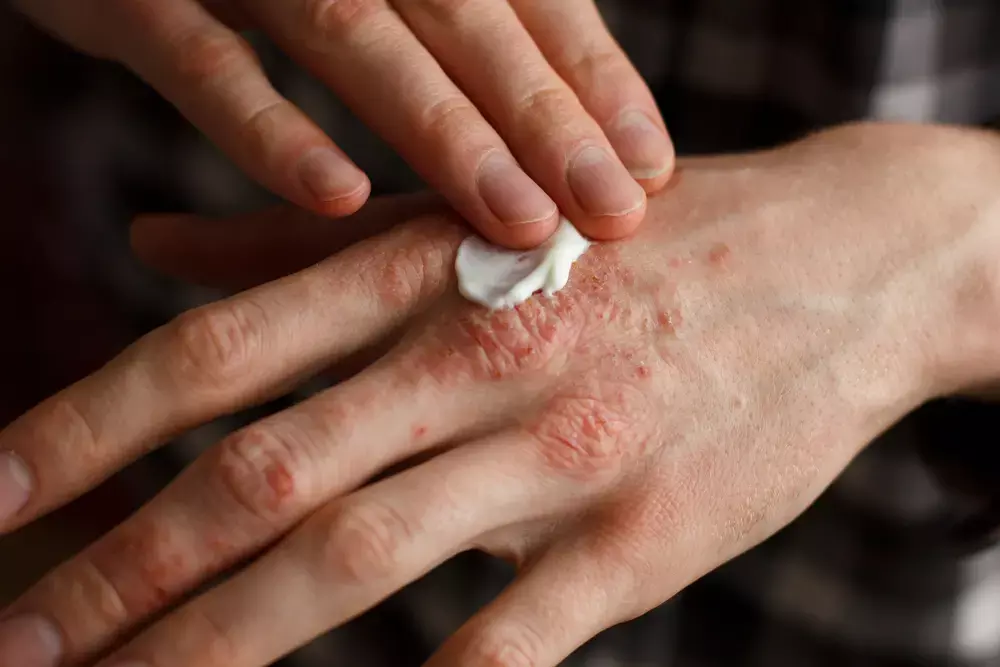- Home
- Medical news & Guidelines
- Anesthesiology
- Cardiology and CTVS
- Critical Care
- Dentistry
- Dermatology
- Diabetes and Endocrinology
- ENT
- Gastroenterology
- Medicine
- Nephrology
- Neurology
- Obstretics-Gynaecology
- Oncology
- Ophthalmology
- Orthopaedics
- Pediatrics-Neonatology
- Psychiatry
- Pulmonology
- Radiology
- Surgery
- Urology
- Laboratory Medicine
- Diet
- Nursing
- Paramedical
- Physiotherapy
- Health news
- Fact Check
- Bone Health Fact Check
- Brain Health Fact Check
- Cancer Related Fact Check
- Child Care Fact Check
- Dental and oral health fact check
- Diabetes and metabolic health fact check
- Diet and Nutrition Fact Check
- Eye and ENT Care Fact Check
- Fitness fact check
- Gut health fact check
- Heart health fact check
- Kidney health fact check
- Medical education fact check
- Men's health fact check
- Respiratory fact check
- Skin and hair care fact check
- Vaccine and Immunization fact check
- Women's health fact check
- AYUSH
- State News
- Andaman and Nicobar Islands
- Andhra Pradesh
- Arunachal Pradesh
- Assam
- Bihar
- Chandigarh
- Chattisgarh
- Dadra and Nagar Haveli
- Daman and Diu
- Delhi
- Goa
- Gujarat
- Haryana
- Himachal Pradesh
- Jammu & Kashmir
- Jharkhand
- Karnataka
- Kerala
- Ladakh
- Lakshadweep
- Madhya Pradesh
- Maharashtra
- Manipur
- Meghalaya
- Mizoram
- Nagaland
- Odisha
- Puducherry
- Punjab
- Rajasthan
- Sikkim
- Tamil Nadu
- Telangana
- Tripura
- Uttar Pradesh
- Uttrakhand
- West Bengal
- Medical Education
- Industry
Clear skin can reduce psoriasis-related quality of life issues in patients, suggests study

A recent research published in the recent issue of The Journal of Dermatology found the complex relationship between achieving clear skin and its impact on the quality of life for individuals with psoriasis. This retrospective observational study encompassed a total of 96 patients who demonstrated successful outcomes with biologic treatments and looked into the factors that influenced patient-reported outcomes.
This study unveiled intriguing findings that challenge the assumption that clear skin equates to an absence of psoriasis-related quality of life issues. A significant portion of patients who achieved remarkable improvement being 37.5% by attaining clear skin (PASI 100), the impact on their quality of life varied considerably.
Nearly half of the participants reported no significant impact of psoriasis on their quality of life while the remaining participants described a negative influence. One significant discovery of this study was the association between achieving PASI 100 and reporting a positive quality of life outcome. The patients who reached this milestone were nearly four times more likely to report no impact of psoriasis on their quality of life when compared to the individuals who did not achieve clear skin.
A history of biologic treatment failure was observed as a significant predictor of poorer quality of life outcomes. The individuals who underwent previous treatment failures were considerably less likely to report an absence of psoriasis-related impacts on their quality of life. Even among patients who achieved clear skin, prior treatment failures cast a shadow on their quality of life. The participants with a history of biologic treatment failure reported significantly lower quality of life scores when compared to their counterparts who did not experience treatment failure.
These findings underline the importance of selecting the most effective biologic treatment upfront rather than adopting a "step-up" approach, which could potentially lead to treatment failures and subsequent negative impacts on the quality of life of the patients. The study emphasizes the need for a precise approach in psoriasis treatment. While achieving clear skin remains a primary goal, this study highlights the importance of considering the previous treatment experiences of patients and the potential impact on their overall well-being. Overall, the implications are significant by advocating for personalized treatment strategies that prioritize both clinical outcomes and the quality of life of the patients.
Study:
Song, W. J., & Yoon, H. (2024). Impact of residual skin lesions and previous biologic treatment failure on patient‐reported outcomes in patients with psoriasis receiving biologic treatment. In The Journal of Dermatology. Wiley. https://doi.org/10.1111/1346-8138.17249
Neuroscience Masters graduate
Jacinthlyn Sylvia, a Neuroscience Master's graduate from Chennai has worked extensively in deciphering the neurobiology of cognition and motor control in aging. She also has spread-out exposure to Neurosurgery from her Bachelor’s. She is currently involved in active Neuro-Oncology research. She is an upcoming neuroscientist with a fiery passion for writing. Her news cover at Medical Dialogues feature recent discoveries and updates from the healthcare and biomedical research fields. She can be reached at editorial@medicaldialogues.in
Dr Kamal Kant Kohli-MBBS, DTCD- a chest specialist with more than 30 years of practice and a flair for writing clinical articles, Dr Kamal Kant Kohli joined Medical Dialogues as a Chief Editor of Medical News. Besides writing articles, as an editor, he proofreads and verifies all the medical content published on Medical Dialogues including those coming from journals, studies,medical conferences,guidelines etc. Email: drkohli@medicaldialogues.in. Contact no. 011-43720751


